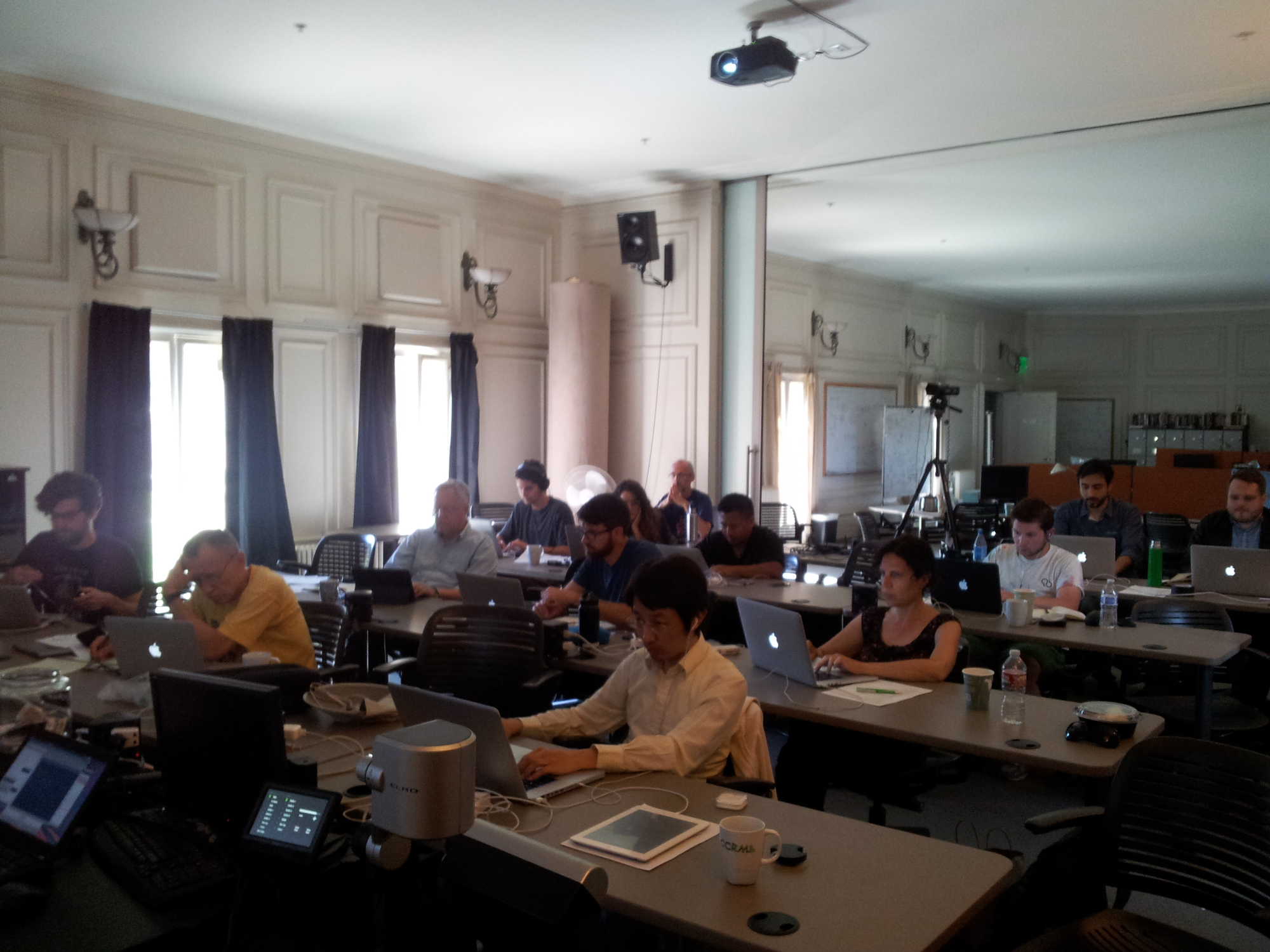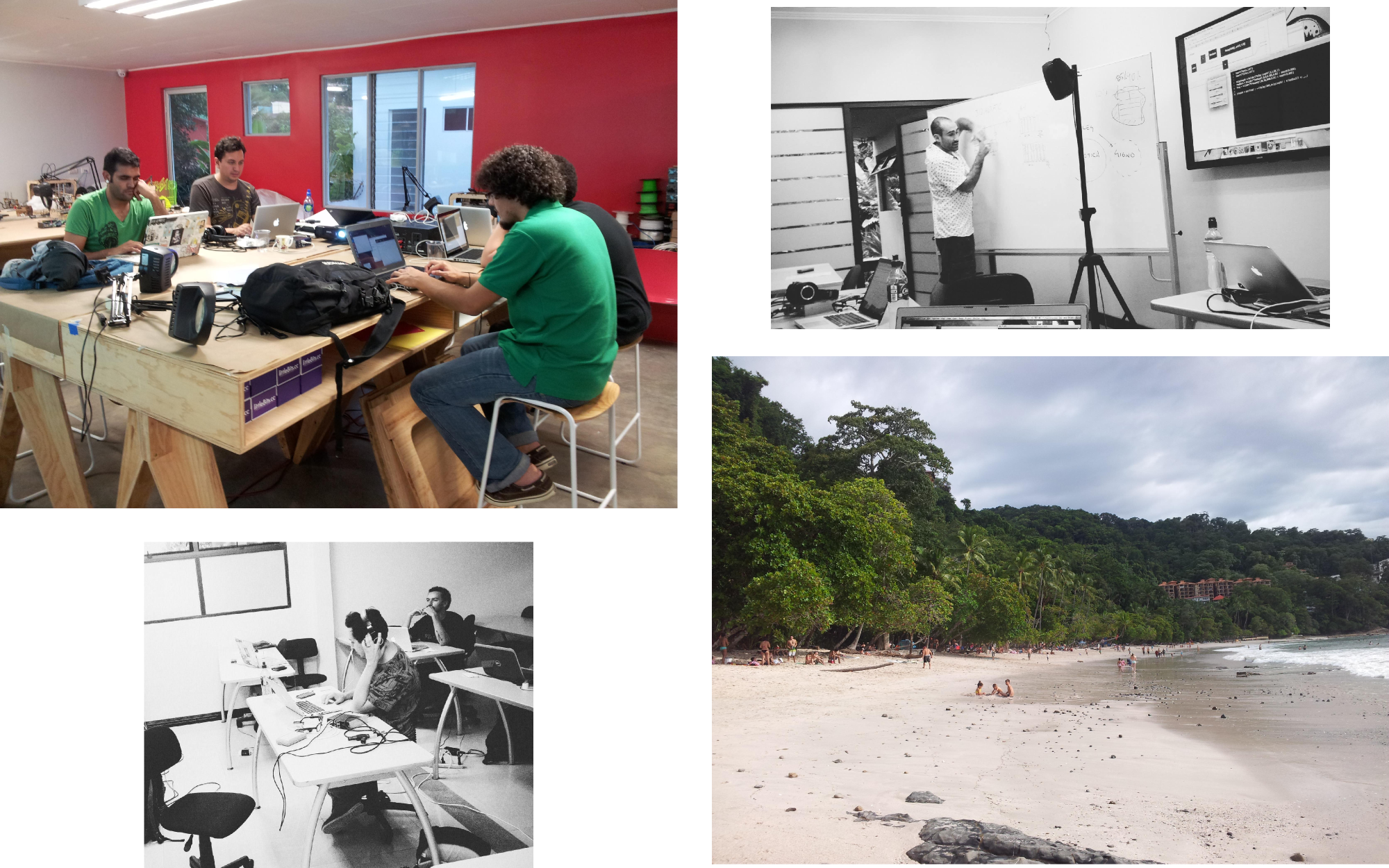3 Years of CCRMA Faust Workshop
Romain Michon
CCRMA, Stanford University
Université Jean Monnet (Saint-Etienne, France) - November 3, 2015
![]()
![]()
CCRMA, Stanford University (USA) - July 2013/14/15
![]()
Festival de Audio y Acústica Costarricense
October 2014 - San José (Costa Rica)
Online Course
https://ccrma.stanford.edu/~rmichon/faustWorkshops/2015/
Faust Days
January 2013 - 2014 - 2015
Evaluation


